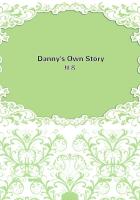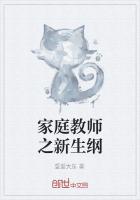2.THE INCREASE PAID TO THE PROPRIETOR BY THE OCCUPANT IS ADEAD LOSS TO THE LATTER.For if the proprietor owed, in exchange for the increase which he receives, some thing more than the permission which he grants, his right of property would not be perfect--he would not possess _jure optimo, jure perfecto;_that is, he would not be in reality a proprietor.Then, all which passes from the hands of the occupant into those of the proprietor in the name of increase, and as the price of the permission to occupy, is a permanent gain for the latter, and a dead loss and annihilation for the former; to whom none of it will return, save in the forms of gift, alms, wages paid for his services, or the price of merchandise which he has delivered.In a word, increase perishes so far as the borrower is concerned; or to use the more energetic Latin phrase,--_res perit solventi_.
3.THE RIGHT OF INCREASE OPPRESSES THE PROPRIETOR AS WELL AS THESTRANGER.The master of a thing, as its proprietor, levies a tax for the use of his property upon himself as its possessor, equal to that which he would receive from a third party; so that capital bears interest in the hands of the capitalist, as well as in those of the borrower and the commandite.If, indeed, rather than accept a rent of five hundred francs for my apartment, I prefer to occupy and enjoy it, it is clear that Ishall become my own debtor for a rent equal to that which I deny myself.This principle is universally practised in business, and is regarded as an axiom by the economists.Manufacturers, also, who have the advantage of being proprietors of their floating capital, although they owe no interest to any one, in calculating their profits subtract from them, not only their running expenses and the wages of their employees, but also the interest on their capital.For the same reason, money-lenders retain in their own possession as little money as possible; for, since all capital necessarily bears interest, if this interest is supplied by no one, it comes out of the capital, which is to that extent diminished.Thus, by the right of increase, capital eats itself up.This is, doubtless, the idea that Papinius intended to convey in the phrase, as elegant as it is forcible--_Foenus mordet solidam_.I beg pardon for using Latin so frequently in discussing this subject; it is an homage which I pay to the most usurious nation that ever existed.
FIRST PROPOSITION.
Property is impossible, because it demands Something for Nothing.
The discussion of this proposition covers the same ground as that of the origin of farm-rent, which is so much debated by the economists.When I read the writings of the greater part of these men, I cannot avoid a feeling of contempt mingled with anger, in view of this mass of nonsense, in which the detestable vies with the absurd.It would be a repetition of the story of the elephant in the moon, were it not for the atrocity of the consequences.To seek a rational and legitimate origin of that which is, and ever must be, only robbery, extortion, and plunder--that must be the height of the proprietor's folly; the last degree of bedevilment into which minds, otherwise judicious, can be thrown by the perversity of selfishness.
"A farmer," says Say, "is a wheat manufacturer who, among other tools which serve him in modifying the material from which he makes the wheat, employs one large tool, which we call a field.
If he is not the proprietor of the field, if he is only a tenant, he pays the proprietor for the productive service of this tool.
The tenant is reimbursed by the purchaser, the latter by another, until the product reaches the consumer; who redeems the first payment, PLUS all the others, by means of which the product has at last come into his hands."Let us lay aside the subsequent payments by which the product reaches the consumer, and, for the present, pay attention only to the first one of all,--the rent paid to the proprietor by the tenant.On what ground, we ask, is the proprietor entitled to this rent?
According to Ricardo, MacCulloch, and Mill, farm-rent, properly speaking, is simply the EXCESS OF THE PRODUCT OFTHE MOST FERTILE LAND OVER THAT OF LANDS OF AN INFERIOR QUALITY;so that farm-rent is not demanded for the former until the increase of population renders necessary the cultivation of the latter.
It is difficult to see any sense in this.How can a right to the land be based upon a difference in the quality of the land? How can varieties of soil engender a principle of legislation and politics? This reasoning is either so subtle, or so stupid, that the more I think of it, the more bewildered I become.Suppose two pieces of land of equal area; the one, A, capable of supporting ten thousand inhabitants; the other, B, capable of supporting nine thousand only: when, owing to an increase in their number, the inhabitants of A shall be forced to cultivate B, the landed proprietors of A will exact from their tenants in Aa rent proportional to the difference between ten and nine.So say, I think, Ricardo, MacCulloch, and Mill.But if A supports as many inhabitants as it can contain,--that is, if the inhabitants of A, by our hypothesis, have only just enough land to keep them alive,--how can they pay farm-rent?
If they had gone no farther than to say that the difference in land has OCCASIONED farm-rent, instead of CAUSED it, this observation would have taught us a valuable lesson; namely, that farm-rent grew out of a desire for equality.Indeed, if all men have an equal right to the possession of good land, no one can be forced to cultivate bad land without indemnification.Farm-rent--according to Ricardo, MacCulloch, and Mill--would then have been a compensation for loss and hardship.This system of practical equality is a bad one, no doubt; but it sprang from good intentions.What argument can Ricardo, MacCulloch, and Mill develop therefrom in favor of property? Their theory turns against themselves, and strangles them.















